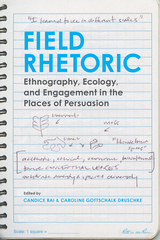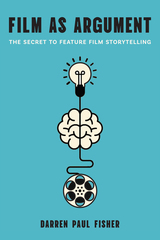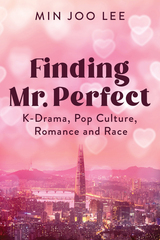6 books about Justice in literature
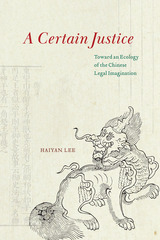
A Certain Justice
Toward an Ecology of the Chinese Legal Imagination
Haiyan Lee
University of Chicago Press, 2023
A much-needed account of the hierarchy of justice that defines China’s unique political-legal culture.
To many outsiders, China has an image as a realm of Oriental despotism where law is at best window dressing and at worst an instrument of coercion and tyranny. In this highly original contribution to the interdisciplinary field of law and humanities, Haiyan Lee contends that this image arises from a skewed understanding of China’s political-legal culture, particularly the failure to distinguish what she calls high justice and low justice.
In the Chinese legal imagination, Lee shows, justice is a vertical concept, with low justice between individuals firmly subordinated to the high justice of the state. China’s political-legal culture is marked by a mistrust of law’s powers, and as a result, it privileges substantive over procedural justice. Calling on a wide array of narratives—stories of crime and punishment, subterfuge and exposé, guilt and redemption—A Certain Justice helps us recognize the fight for justice outside the familiar arenas of liberal democracy and the rule of law.
To many outsiders, China has an image as a realm of Oriental despotism where law is at best window dressing and at worst an instrument of coercion and tyranny. In this highly original contribution to the interdisciplinary field of law and humanities, Haiyan Lee contends that this image arises from a skewed understanding of China’s political-legal culture, particularly the failure to distinguish what she calls high justice and low justice.
In the Chinese legal imagination, Lee shows, justice is a vertical concept, with low justice between individuals firmly subordinated to the high justice of the state. China’s political-legal culture is marked by a mistrust of law’s powers, and as a result, it privileges substantive over procedural justice. Calling on a wide array of narratives—stories of crime and punishment, subterfuge and exposé, guilt and redemption—A Certain Justice helps us recognize the fight for justice outside the familiar arenas of liberal democracy and the rule of law.
[more]
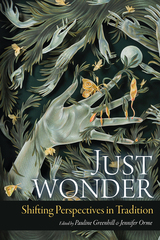
Just Wonder
Shifting Perspectives in Tradition
Pauline Greenhill
Utah State University Press, 2024
Inspired by folklore, television, fairy tales, social media, novels, and films, Just Wonder addresses crucial themes in social and ecological justice efforts. Moving into the mid-twenty-first century, wonder—as a potentially critical sociocultural, ecological, and individual stance—will play a significant role in reconceptualizing the present to imagine a different and better world.
These essays examine fairy tales and other traditional forms of the fantastic and the real to offer alternative expressions of justice relevant to gender, sex, sexuality, environment, Indigeneity, class, ability, race, decolonizing, and human and nonhuman relations. By analyzing fairy tales and wonder texts from various media through an intersectional feminist lens, Pauline Greenhill and Jennifer Orme consider how wonder genres and forms blend with diverse conceptions of seeking and enacting justice. International collaborators—both established and emerging scholars who self-identify with different subjectivities, locations, and generations and come from an impressive range of inter/disciplines—engage with contemporary and historical texts from various languages and cultural contexts, including interventions, counterparts, and comparisons to the fairy tale. Just Wonder offers a critical look at how creative wondering can expand the ability to resist modes of oppression while fostering equity, as well as encourage curiosity and imagination.
In a world that can be overwhelming and precarious, this book presents scholarly, artistic, personal, and collective-action interventions to identify and respond to injustice while centering wonder and, thus, imagination, questioning, and hope. Just Wonder will appeal to fairy-tale scholars; folklorists; students and scholars of film, media studies, and cultural studies; as well as a general audience.
These essays examine fairy tales and other traditional forms of the fantastic and the real to offer alternative expressions of justice relevant to gender, sex, sexuality, environment, Indigeneity, class, ability, race, decolonizing, and human and nonhuman relations. By analyzing fairy tales and wonder texts from various media through an intersectional feminist lens, Pauline Greenhill and Jennifer Orme consider how wonder genres and forms blend with diverse conceptions of seeking and enacting justice. International collaborators—both established and emerging scholars who self-identify with different subjectivities, locations, and generations and come from an impressive range of inter/disciplines—engage with contemporary and historical texts from various languages and cultural contexts, including interventions, counterparts, and comparisons to the fairy tale. Just Wonder offers a critical look at how creative wondering can expand the ability to resist modes of oppression while fostering equity, as well as encourage curiosity and imagination.
In a world that can be overwhelming and precarious, this book presents scholarly, artistic, personal, and collective-action interventions to identify and respond to injustice while centering wonder and, thus, imagination, questioning, and hope. Just Wonder will appeal to fairy-tale scholars; folklorists; students and scholars of film, media studies, and cultural studies; as well as a general audience.
[more]
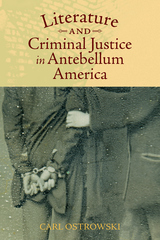
Literature and Criminal Justice in Antebellum America
Carl Ostrowski
University of Massachusetts Press, 2016
The United States set about defining and reforming its criminal justice institutions during the antebellum years, just as an innovative, expanding print culture afforded authors and publishers unprecedented opportunities to reflect on these important social developments. Carl Ostrowski traces the impact of these related historical processes on American literature, identifying a set of culturally resonant narratives that emerged from criminal justice-related discourse to shape the period's national literary expression.
Drawing on an eclectic range of sources including newspaper arrest reports, prison reform periodicals, popular literary magazines, transatlantic travel narratives, popular crime novels, anthologies of prison poetry, and the memoirs of prison chaplains, Ostrowski analyzes how authors as canonical as Nathaniel Hawthorne and as obscure as counterfeiter/poet/prison inmate Christian Meadows adapted, manipulated, or rejected prevailing narratives about criminality to serve their artistic and rhetorical ends. These narratives led to the creation of new literary subgenres while also ushering in psychological interiority as an important criterion by which serious fiction was judged. Ostrowski joins and extends recent scholarly conversations on subjects including African American civic agency, literary sentimentalism, outsider authorship, and the racial politics of antebellum prison reform.
Drawing on an eclectic range of sources including newspaper arrest reports, prison reform periodicals, popular literary magazines, transatlantic travel narratives, popular crime novels, anthologies of prison poetry, and the memoirs of prison chaplains, Ostrowski analyzes how authors as canonical as Nathaniel Hawthorne and as obscure as counterfeiter/poet/prison inmate Christian Meadows adapted, manipulated, or rejected prevailing narratives about criminality to serve their artistic and rhetorical ends. These narratives led to the creation of new literary subgenres while also ushering in psychological interiority as an important criterion by which serious fiction was judged. Ostrowski joins and extends recent scholarly conversations on subjects including African American civic agency, literary sentimentalism, outsider authorship, and the racial politics of antebellum prison reform.
[more]

Natchiq Grows Up
The Story of an Alaska Ringed Seal Pup and Her Changing Home
Donna D.W. Hauser
University of Alaska Press, 2023
This is the story of Natchiq, the ringed seal pup, growing up in her snow cave on the sea ice in northern Alaska with her mom Siku. Interwoven with Indigenous Knowledge from Qikiktagruk Elders from northwest Alaska, Iñupiaq terms, and scientific findings, readers follow Natchiq’s daring escapes from predators and seal dogs specially trained to help biologists find ringed seals.
Beginning in the 1980s, scientists started traveling to northwest Alaska to research the lives of ringed seals, bringing Labrador retrievers who could sniff out seals and their snow cave homes (called lairs) on the sea ice. Decades later, scientists partnered with the Iñupiaq people of
Qikiktaġruk (Kotzebue) to learn more about ringed seals. They relied on a combination of Indigenous Knowledge and scientific techniques to capture and apply tags to understand the movements and behavior of ringed seals.
But the Arctic homes of ringed seals are changing, and the long history of ringed seal science in the Kotzebue Sound proved to be just the beginning of long and cooperative relationships melding science and Indigenous knowledge. During 2018 and 2019, with unprecedented sea ice conditions, Qikiktagrumiut Elders and scientists returned to the ice to measure changes in the habitat available for ringed seal pups in the region.
Beginning in the 1980s, scientists started traveling to northwest Alaska to research the lives of ringed seals, bringing Labrador retrievers who could sniff out seals and their snow cave homes (called lairs) on the sea ice. Decades later, scientists partnered with the Iñupiaq people of
Qikiktaġruk (Kotzebue) to learn more about ringed seals. They relied on a combination of Indigenous Knowledge and scientific techniques to capture and apply tags to understand the movements and behavior of ringed seals.
But the Arctic homes of ringed seals are changing, and the long history of ringed seal science in the Kotzebue Sound proved to be just the beginning of long and cooperative relationships melding science and Indigenous knowledge. During 2018 and 2019, with unprecedented sea ice conditions, Qikiktagrumiut Elders and scientists returned to the ice to measure changes in the habitat available for ringed seal pups in the region.
[more]
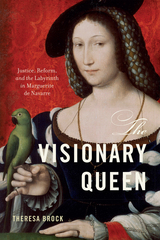
The Visionary Queen
Justice, Reform, and the Labyrinth in Marguerite de Navarre
Theresa Brock
University of Delaware Press, 2024
The Visionary Queen affirms Marguerite de Navarre’s status not only as a political figure, author, or proponent of nonschismatic reform but also as a visionary. In her life and writings, the queen of Navarre dissected the injustices that her society and its institutions perpetuated against women. We also see evidence that she used her literary texts, especially the Heptaméron, as an exploratory space in which to generate a creative vision for institutional reform. The Heptaméron’s approach to reform emerges from statistical analysis of the text’s seventy-two tales, which reveals new insights into trends within the work, including the different categories of wrongdoing by male, institutional representatives from the Church and aristocracy, as well as the varying responses to injustice that characters in the tales employ as they pursue reform. Throughout its chapters, The Visionary Queen foregrounds the trope of the labyrinth, a potent symbol in early modern Europe that encapsulated both the fallen world and redemption, two themes that underlie Marguerite's project of reform.
[more]
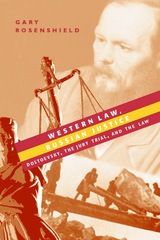
Western Law, Russian Justice
Dostoevsky, the Jury Trial, and the Law
Gary Rosenshield
University of Wisconsin Press, 2005
Gary Rosenshield offers a new interpretation of Dostoevsky's greatest novel, The Brothers Karamazov. He explores Dostoevsky's critique and exploitation of the jury trial for his own ideological agenda, both in his journalism and his fiction, contextualizing his portrayal of trials and trial participants (lawyers, jurors, defendants, judges) in the political, social, and ideological milieu of his time. Further, the author presents Dostoevsky's critique in terms of the main notions of the critical legal studies movement in the United States, showing how, over one hundred and twenty years ago, Dostoevsky explicitly dealt with the same problems that the law-and-literature movement has been confronting over the past two decades. This book should appeal to anyone with an interest in Russian literature, Russian history and culture, legal studies, law and literature, narratology, or metafiction and literary theory.
[more]
READERS
Browse our collection.
PUBLISHERS
See BiblioVault's publisher services.
STUDENT SERVICES
Files for college accessibility offices.
UChicago Accessibility Resources
home | accessibility | search | about | contact us
BiblioVault ® 2001 - 2025
The University of Chicago Press


